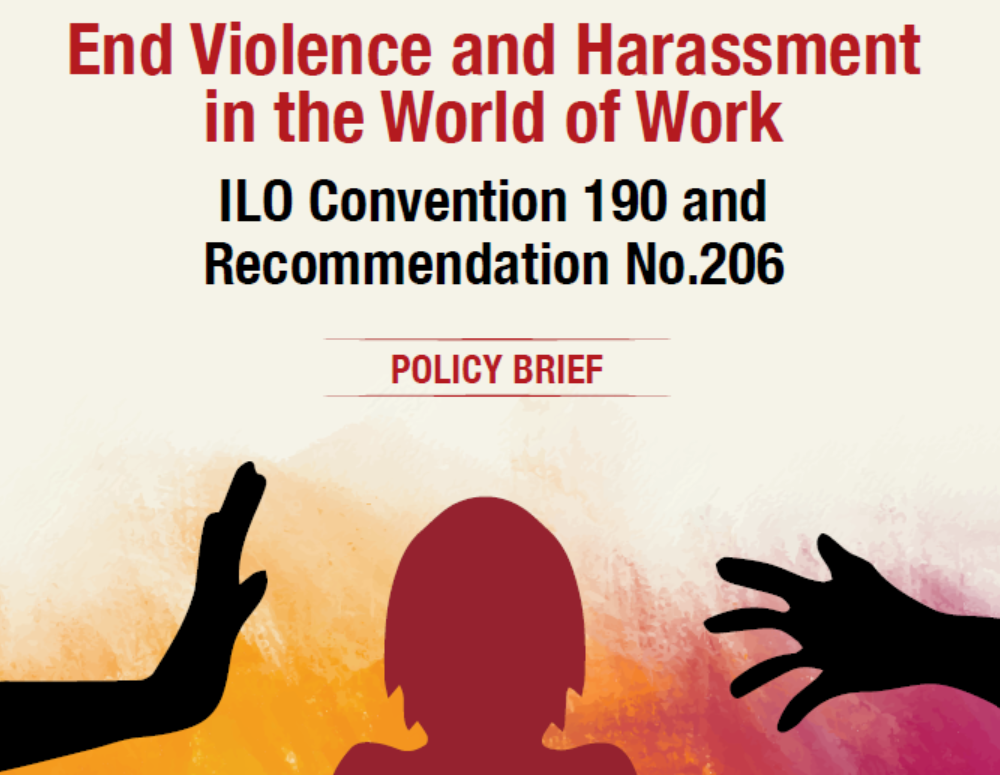
Policy Brief: Ending Violence and Harassment in the World of Work
The right to work is a fundamental human right recognized in various international legal instruments. The Universal Declaration on Human Rights (UDHR)1 stipulates that “everyone has the right to work, to free choice of employment, to just and favourable conditions of work and to protection against unemployment.” Likewise, article 7 of the International Covenant on Economic Social and Cultural Rights (ICESCR)2 recognizes the right to the enjoyment of just and favourable conditions of work. Violence and harassment in the world of work greatly undermines the right to work through prohibiting people from accessing or keeping work. It is also an antithesis of decent work which is defined by the International Labour Organization (ILO)3 as dignity, equality, fair income and fair working conditions.
This policy brief provides an overview of violence and harassment in the world of work in Kenya. It analyses the issues and legal framework, sets out FEMNET’s position on ILO Convention 190 on Ending Violence and Harassment in the World of Work and provides policy recommendations.
The policy brief draws on literature on violence and harassment in the world of work and key informant interviews, conducted in Kenya in July and August 2020, with workers representatives, the Central Organization of Trade Unions (COTU), civil society organizations and relevant government departments and offices. It also builds on FEMNET’s advocacy work on ILO Convention 190 with a view to informing necessary actions in pursuit of
ratification of this convention by the Government of Kenya.
Click here to Read/ Download the Policy Brief on Ending Violence and Harassment at the Workplace
